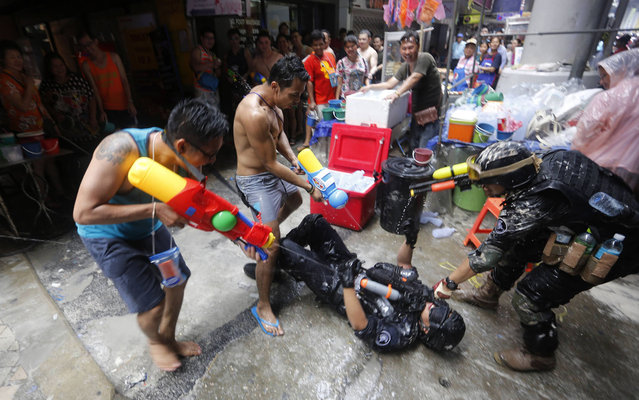
Revellers take part in a water fight during Songkran Festival celebrations on Silom Road in Bangkok April 14, 2014. The Songkran festival, also known as the water festival, marks the start of Thailand's traditional New Year and is believed to wash away bad luck. (Photo by Darren Whiteside/Reuters)
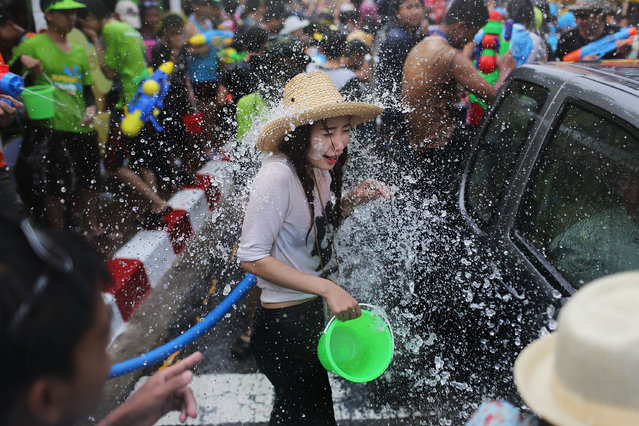
Tourists and Thai residents take part in a city-wide water fight during the Songkran water festival on April 14, 2014 in Chiang Mai, Thailand. The Songkran festival, marking the traditional Thai New Year, is celebrated each year from April 13 to 15. The throwing of water was traditionally a sign of respect and well wishing during the festival. (Photo by Taylor Weidman/Getty Images)
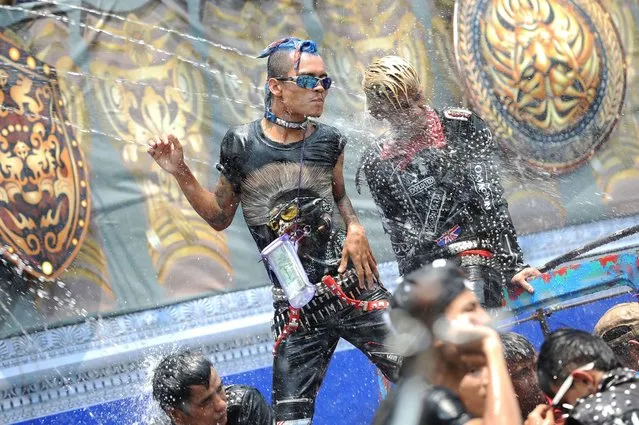
People take part in celebrations for Thingyan, a water festival which marks the country's new year in Yangon on April 16, 2014. New year is celebrated on April 13 in the four southeastern Asian nations of Myanmar, Thailand, Cambodia and Laos. (Photo by Soe Than Win/AFP Photo)
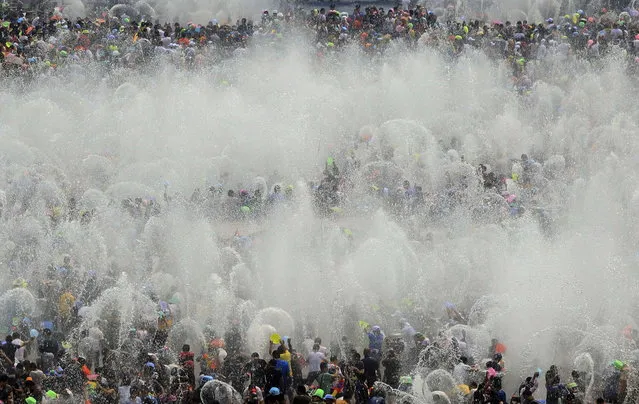
Visitors participate in the annual water-splashing festival to mark the New Year of the Dai minority in Xishuangbanna, Yunnan province April 15, 2014. Last Sunday marked the beginning of the 1,376th New Year, according to the ethnic Dai minority calendar. (Photo by Reuters/China Daily)

A tourists holds a water gun as she joins the upcoming annual Songkran Festival celebration, the Thai traditional New Year, also known as the water festival at Khao San road in Bangkok, Thailand, 12 April 2014. The three-day Songkran Festival runs from 13 to 15 April and is celebrated with splashing water and putting powder on each others faces as a symbolic sign of cleansing and washing away the sins from the old year. (Photo by Narong Sangnak/EPA)
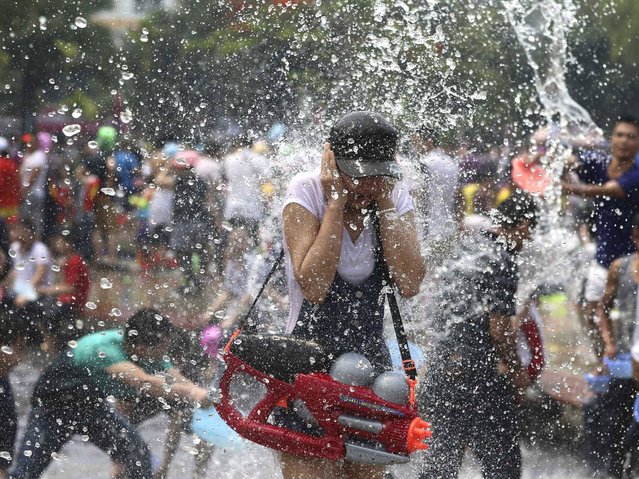
A participant dodges in the annual water-splashing festival to mark the New Year of the Dai minority in Xishuangbanna, Yunnan province. (Photo by Wong Campion/Reuters)
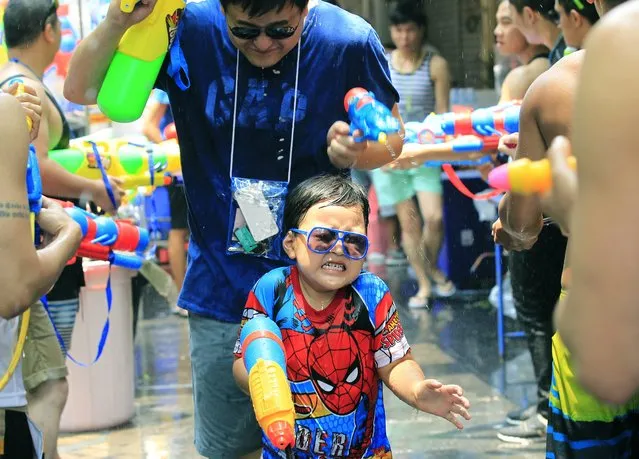
Foreign tourists join the annual Songkran Festival celebration, the Thai traditional New Year, also known as the water festival in Silom district of Bangkok, Thailand, 13 April 2014. The three-day Songkran Festival runs from 13 to 15 April and is celebrated with splashing water and putting powder on each others faces as a symbolic sign of cleansing and washing away the sins from the old year. (Photo by Narong Sangnak/EPA)
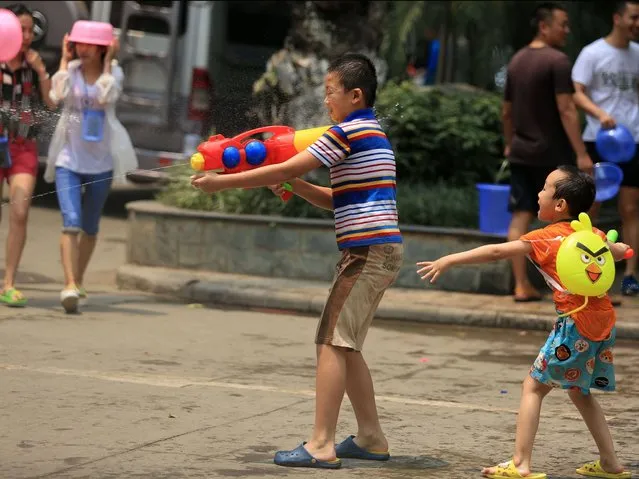
This picture taken on April 15, 2014 shows people taking part in the annual water festival to celebrate the new year of the Dai ethnic group in Jinghong, southwest China's Yunnan province. A series of celebrations kick off on April 13 to welcome the coming year of 1376 in the Dai ethnic group calendar, with people dancing and parading on the streets of Jinghong municipality in China's Xishuangbanna Dai Autonomous Prefecture. (Photo by AFP Photo)
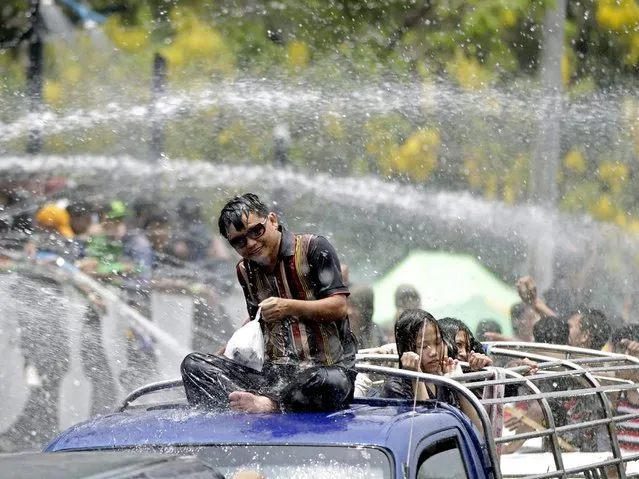
Festival last for three days.T he third day is reserved for water splashing. On that day, people put their newest and best clothes, then assemble at the local Buddhist temple, where the monks chant Buddhist scriptures. Afterward, a symbolic water splashing ritual is enacted whereby a Buddhist statue, with pomp and ceremony, is first coaxed out of the temple to the courtyard, then is splashed with water. This important ritual is called “Bathing the Buddha”. (Photo by Nyein Chan Naing/EPA)
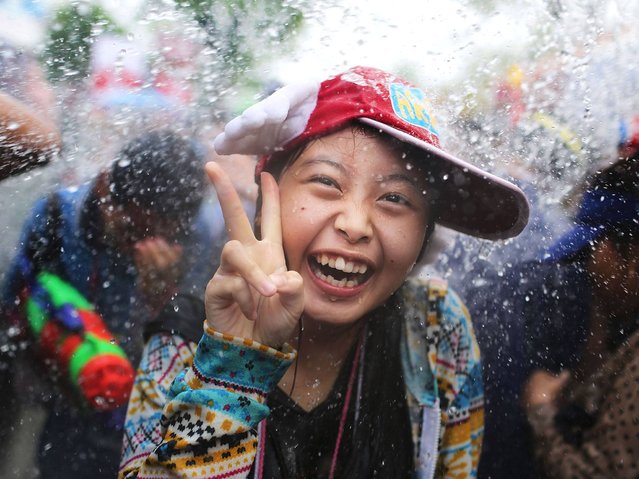
The festival has many different names specific to each country, such as Songkran in Laos and Thailand, Chaul Chnam Thmey in Cambodia, and Thingyan in Myanmar. The New Year is celebrated in other South Asian countries, based on the astrological event of the sun beginning its northward journey. (Photo by Taylor Weidman/Getty Images)
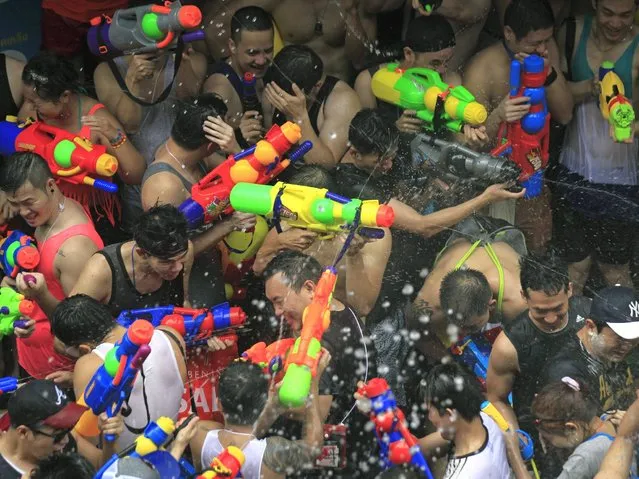
Thai and tourists splash with water as they join the annual Songkran Festival celebration, the Thai traditional New Year, also known as the water festival in Silom district of Bangkok. (Photo by Narong Sangnak/EPA)
17 Apr 2014 11:19:00,
post received
0 comments
